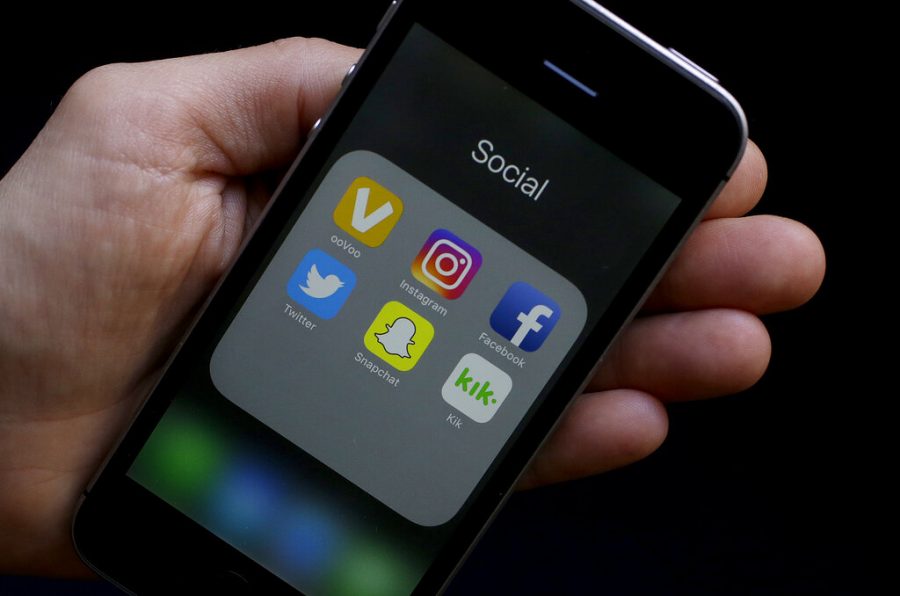How the internet deforms human curiosity
The danger of everyone having access to virtually any information, at any time, from anyone and anywhere
One day, in my seventh grade Life Science class, I discovered the wonder of Darwin’s theory of evolution. I will never forget how the sheer beauty of this simple idea consolidated in my mind, its precepts fitting together like the pieces of a universal puzzle.
Most people will recognize this exciting, satisfactory feeling of discovery, of encountering a new and revelatory way of viewing the world. As humans, we are curious by nature and enjoy satisfying our curiosity.
Unfortunately, in today’s world of instantaneous information, this natural tendency can easily fall prey to a shiny falsification or misrepresentation of the facts. By facilitating easy access to practically any information at any time—and allowing seamless manipulation of that information by virtually anyone—the internet ultimately deforms the process of individual curiosity.
Without a doubt, the internet is one of the most remarkable human innovations of all time. It has become so ingrained within modern life that we generally don’t pay its extraordinariness a second thought, but consider for a moment how incredible it is that people today can transmit practically any information across the world in a matter of seconds. That is wild!
Because of the internet, virtually anyone can learn just about anything they could ever want to know with a few clicks. Furthermore, because the internet effectively provides everyone with a microphone to the world, information dissemination has probably never been more democratic than today.
As a result, when online, we all inhabit a dynamic ecosystem of information in which we continually encounter new ideas, statistics, and news items. The internet has, therefore, dramatically increased the likelihood that, at any given time, a person will experience a revelatory “wow” moment. And, simultaneously, it has democratized the production of such moments by lowering barriers to content creation.
It represents a curiosity revolution, which has, in several regards, accomplished substantial good. For instance, the internet has proven a successful incubator for movements against political corruption and oppressive regimes.
Earlier this year in Russia, the savvy online campaigning of the now-arrested opposition leader Alexy Navalny helped engender massive anti-Putin protests. The rapid spread of a Navalny anti-corruption documentary entitled ‘Putin’s Palace,’ which has racked up nearly 100 million views on Youtube, illustrates the immense capabilities of this sort of activism.
Unfortunately, more often than not, the information free-for-all of the internet allows for the easy dissemination of falsehoods that prey upon our natural human curiosity. When anyone can access practically any information at any time, without rules or signage regarding what is true or false, the truth suffers.
At home in the United States, the viral spread of pandemic-related conspiracy theories has called attention to this issue. Last spring, for instance, a video called ‘Plandemic’ alleging that a group of elites fabricated Covid to profit and gain power gained millions of views online.
Multiple studies have since shown considerable public support for this dangerous conspiracy theory. According to a July Pew Research Center survey, 25% of Americans then saw some truth in the claim that the pandemic is a hoax.
I imagine that, upon discovering such a conspiracy theory, many people feel a sense of the pieces of the puzzle fitting together, resembling how I felt when learning about evolution. On the internet, unfortunately, this feeling generally goes unchecked and can spread like wildfire.
What can we do, as a society and as individuals, to tackle this tremendously harmful deforming of the process of individual curiosity?
First off, the internet is too integrated within and essential to modern society to eliminate. Without the internet, schools and many businesses could not have continued to function throughout much of the pandemic.
As a society, though, we must in the coming years grapple with some essential questions. Should social media companies be held accountable for the dissemination of falsehoods on their platforms? What regulatory role should the government play in terms of information on the internet?
I don’t have the answers to these questions—I’ll leave that up to people far more knowledgeable on this topic than me. However, I do know that there must be change, and soon.
On an individual level, we must all try to approach new information skeptically and rationally. When I encounter big claims online, I ask myself the following questions: Who says that is true, and where is the evidence?
It is far from a foolproof method (I’ve been confused by a few online falsehoods myself), and I harbor no illusions that mere individual action can overcome the curiosity-entrapping nature of the internet. It is common sense, though, and ought to be universal.
That “wow” moment most people feel upon encountering a new and revelatory way of viewing the world can be a beautiful, awe-inspiring thing. We ought to preserve its integrity.







































